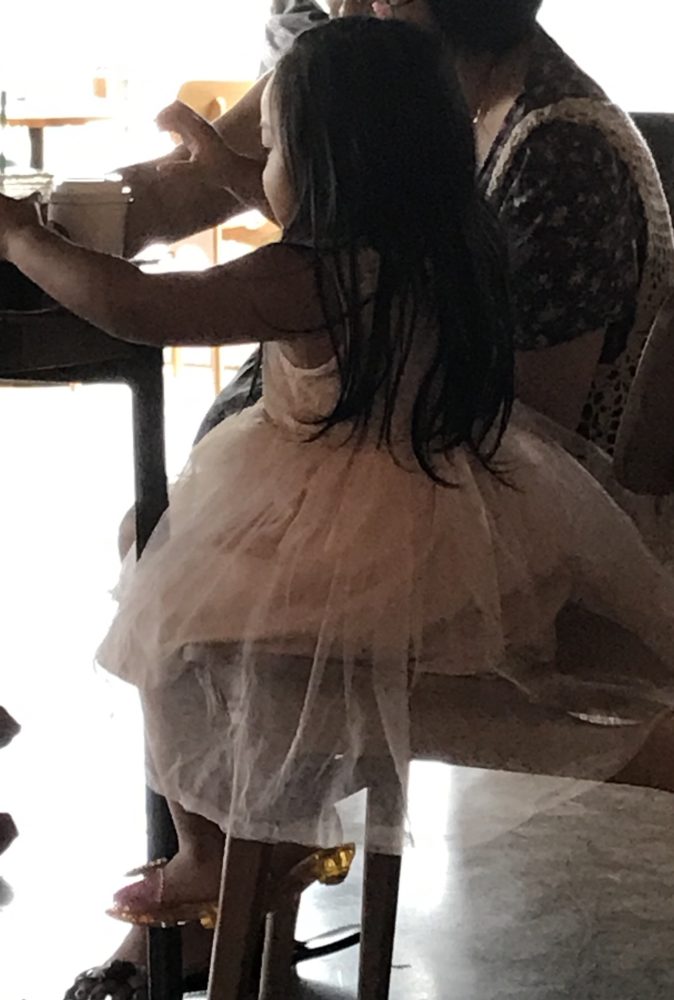
by bsquared5@aol.com | Aug 28, 2017 | Thoughts
An Alabama university town like the one I happen to be in today is all business. Herds of students laden with backpacks schlep to class, earbuds in, dodging traffic at crosswalks. The stadium parking attendant must have been NSA in a past life. No way was I parking there without written permission. My out of state license plate branded me as suspect from the get-go. It’s just a parking space, dude. Chill.
Here, summer is full-force. Summers in the south are not to be trifled with. Without the benefit of months of hard frost, we live side by side with mosquitoes, chiggers, and the insidious no-see-um’s that will unapologetically eat the flesh from your bones while you sit on your front porch. My small son once rode a golf cart through a field for 15 minutes and came back with his entire body peppered with seed ticks so tiny we had to use a flashlight and magnifying glass to see them all. Ever tried to tweeze 200 seed ticks off a hot, cranky, squirming toddler? Good times, is all I’m saying.
Summers in Alabama ain’t playing. Old men cut the grass in long sleeves because the sun isn’t particular about sprinkling melanomas far and wide. They wipe their necks with worn handkerchiefs and wave away the flies while the mower sends up clouds of red dust. In church on Sundays, the ladies wave their paper funeral parlor fans in time with the preacher’s cadence, stirring the stuffy air perfumed with talcum powder and hair spray. From the balcony it looks like a synchronized school of fish, their tails flicking to and fro. Summer Sundays in small-town churches have a funny way of reminding you where you’re ultimately headed–ashes to ashes, dust to dust–and how you most certainly better straighten up and fly right lest you end up anywhere near this hot.
In case you missed it, we had an eclipse last week. We happened to be in the path of totality, which was quite a wonder to behold. The moon blotted out the sun in the middle of the day. Yes, yes, it was a bucket list spectacle, but it wasn’t all noble and educational: people in the south were dancing in the street because for about thirty seconds we had some blessed shade.
As a kid in central Florida, summers were for bare feet and swimsuits, running through the sulfur-smelling sprinklers and drinking from the hose when we got thirsty. Weekends were spent on horseback, calves stuck to our horses’ flanks and hands full of mane. I’d come home with the creases in my wrists, elbows, and knees lined with black dirt, the tang of horse sweat and leather as sweet as the honeysuckle we’d pick to lick nectar from the stem.
At least once, our family would pile into the station wagon and head north to the Gulf Coast, where my grandparents lived before the condos, go-carts, and mini golf outfits modernized everything. We were overheated and irritable, arguing over who had to sit on the hump and who hogged all the scupernongs from the last roadside stand we passed. Round about Gainesville, in a little town called Fort White, we’d start to see piles of inner tubes along the highway and my dad would stop to lash several to the top of the car. It seems God, having made the intolerable summers in the first place, had provided an oasis for weary travelers and sun-scorched southerners. Itchetucknee Springs stays the same cool 70 degrees year-round, its crystal waters a tonic for the parched and perturbed. We lashed our tubes together and rode the current down the river, while a watermelon chilled in the cooler in the car. It made us nicer to each other the remainder of the trip.
Once we reached Panama City, my grandparents endured no extravagances like air conditioning. This is why southern coastal houses had sleeping porches, where you could escape the stifling indoors and retreat to the sticky and humid outside. Summer gardens are in peak production in the south, and my grandmother canned everything that sprouted from the sandy soil. An afternoon of canning peaches, tomatoes, okra, and pickles made the tiny formica kitchen steamy, the heat itself wafting out the screen door trying to find a cool spot. There must have been some old video footage of us lugging jars from the shed to the furnace that was that kitchen. I’m convinced that’s where the ludicrous idea of hot yoga originated.
It’s easy to get all out of sorts in the heat and traffic. I was just in Atlanta rush hour a few days ago, and I’m sure my blood pressure jetted skyward several points. Outrage is the emotion of the year and tempers seem to flare at every real or perceived injustice. We foam at the mouth over politics, co-workers, and uncooperative toddlers or teens. When you add humidity-hair, sunburn, and swollen fingers to the mix, it gets ugly. My phone actually turned itself off because it got too hot the other day. Even the technology is rebelling!
I found an acceptable parking space in a nearby Starbucks, where as it turns out, a reminder appeared. Near her grandmother, a sprite of a little girl sat swinging her legs. She was dressed in a filmy cotton-candy-colored tutu with jeweled Cinderella slippers because that’s what you wear on a Monday in August when you’re four. She giggled and smiled and clack-clacked across the floor in those slippers to fetch a napkin for her grandma, and every head in Starbucks turned to smile at her. She radiated delight.
What would happen if we traded our collective outrage for delight? If despite the heat, traffic, and 1,000 every day annoyances, we found one small thing to delight in? Maybe you don’t need to don a pink tutu, but eat your favorite flavor of popsicle, ride a bike, or belt out a song in your car. Breathe. Come in out of the heat, eat a home-grown tomato and a piece of chess pie and chill.
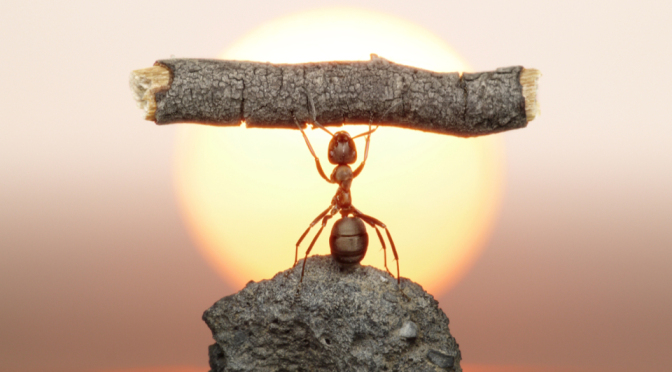
by bsquared5@aol.com | Jun 14, 2015 | Thoughts
I’m thinking our house must sit on top of an ancient Indian ant burial ground. For the past few weeks, tiny specks of pepper have been scurrying around the cat food and finding their way into the house via impossible cracks. On closer inspection, the pepper specks have legs. Exactly six. And antennae. They seem undeterred by copious amounts of poisonous sprays or natural remedies like lemon, cinnamon, or cayenne pepper. The cats have been forced to eat around the creepy crawlies–or simply ingest them as extra protein.
My daughter even discovered ants in her car. Those must have been the Mission Impossible species, clinging to the tire treads at interstate speeds, their antennae flattened by the high winds. Must. Find. Sugar. Source. MI-6 has disavowed all knowledge.
Finally we called the big guns and the exterminator came out to lock down the perimeter. I’m sure whatever force-field she sprayed around the house is probably some neurotoxin that will eventually render us all drooling idiots, but I can no longer handle wiping the counters and finding the paper towel covered in black ants. So for the next few days, we’ll be taking shallow breaths to minimize intake and crossing our fingers that the hideouts have been destroyed.
I should not complain. Where I grew up in Florida, you had to be very careful where you sat or stood outside because chances were good you were probably within attack distance of a fire ant mound. A few months ago, I drove through Alabama and could see their red-dirt mounds alongside the interstate, camouflaged in the tall grass. The sight sent an involuntary shudder through me, and I made sure the windows were rolled up. We were playing tag once, and I fell into one of these cone-shaped piles of sand. Within seconds, the red armies were pouring out like streams of water, stinging wherever they stuck to my skin. Fire ants are so named because the venom they inject actually feels like fire under the skin. A more descriptive name might be Hell Ants or maybe Napalm Ants. Unlike bees, ants do not die when they sting, so they can repeatedly sting while they cling to one spot.
I ran furiously brushing, swatting, and howling to my mother who, dishtowel in hand, whacked me all over to get the clinging monsters off. I know firsthand where the adage “ants in your pants” comes from. To add insult to injury, their stings turn to small blisters that itch like the mother of all mosquito bites. I hate–not too strong a word–hate this kind of ant. Had I, at age seven, been given a flame thrower, I would have taken my revenge with a maniacal laugh—-mwuahahahaha!
Aside from the beaches, Florida is not really meant for human habitation. The heat and humidity breed uncommon insects. One rare lazy morning we all sat at the kitchen bar, excited to have homemade waffles for breakfast. As my mother heated the waffle iron, an odd odor like burning metal started to fill the room. We checked the outlet and the oven–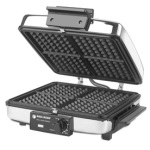 nothing. The green light blinked on the waffle iron signaling it was hot enough to cook waffles. When she lifted the lid, panicked and burning black carpenter ants spilled from the hot surface. The closed waffle iron had been the perfect ready-made nesting area, like an ant farm, with corridors and hallways all laid out. These ants were large, each part of their body like the pearls on a blackberry, and their little feet were toasting as they labored to save their young. We screamed and swatted, smacked and shrieked, as they poured over the counter and onto the floor. My mother practically threw the hot waffle iron at my father, and he ran to throw it outside. We had eggs instead.
nothing. The green light blinked on the waffle iron signaling it was hot enough to cook waffles. When she lifted the lid, panicked and burning black carpenter ants spilled from the hot surface. The closed waffle iron had been the perfect ready-made nesting area, like an ant farm, with corridors and hallways all laid out. These ants were large, each part of their body like the pearls on a blackberry, and their little feet were toasting as they labored to save their young. We screamed and swatted, smacked and shrieked, as they poured over the counter and onto the floor. My mother practically threw the hot waffle iron at my father, and he ran to throw it outside. We had eggs instead.
Like bees, ants are often held up as examples of industrious character. The writer of Proverbs tells the sluggard to consider the ant and her ways: lots of initiative, always busy in every season. I used to spend long hours outside, watching lines of ants marching two by two, hurrah, hurrah! No matter how many drops of water you put on them, or how you tried to divert their path, they were dauntless. Grain by grain, they build their hills patiently and steadily. Like African women along the village roadside, they carry enormous loads balanced above their heads, walking great distances to reach their home.
On the other hand, many species of ants pillage other colonies and steal their eggs. These eggs are then either eaten or the young, once hatched, are forcibly required to work. In other words, they make ant slaves. Except for Antarctica and the Arctic, ants are everywhere. Scientists estimate their numbers on earth to be a paltry quadrillion at any given time. That’s 15 zeros. I checked.
So, while you might see them as industrious little yes-men, I see them as our future insect overlords. While they may seem small and (aside from the fire ants–may curses be upon their tiny heads!) relatively harmless, these invasive, enslaving, cooperative little creatures outnumber us by, well, a lot of zeros. Perhaps I should be nicer to them? My swatting, burning, and spraying may come back to–literally–bite me.
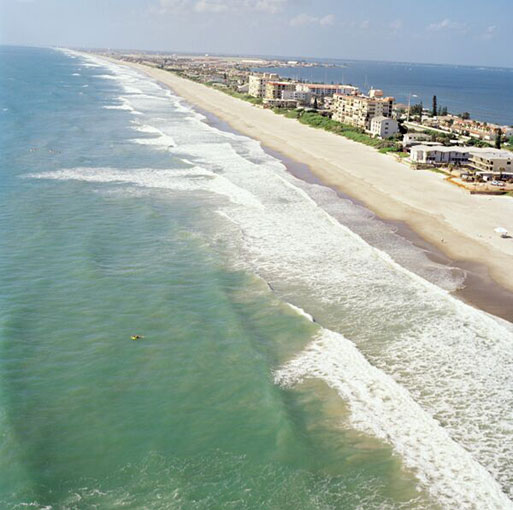
by bsquared5@aol.com | Feb 5, 2015 | Thoughts
These cold February days have me day dreaming about my Floridian childhood. Most of my formative years were spent on Florida’s Space Coast, the stomping ground of Major Nelson and Jeannie from the 1970’s I Dream of Jeannie show.
We lived just a few blocks from the ocean, although we rarely went. Hard to believe now that we actually schedule family vacations for that very purpose, but familiarity breeds contempt, I suppose. Our beach was rocky and full of seaweed and many times was a minefield full of clumps of sticky tar that was impossible to scrub from your feet. Still, we would sometimes be lucky enough to spot a loggerhead turtle laying her eggs, scooping sand with her flippers to cover the nest before heading back out to sea.
Our zip code designated our address as Satellite Beach, about an hour south of Orlando and central Florida’s tourist Mecca. We had Florida resident and military discounts to Disney and Sea World, so I lost count of how many times we were there. Once I got older, my friends and I got dropped off at the gate a few times by our parents, kind of like the mall hangout for today’s crowd, except instead of Hollister and the Cookie Store, we got Mickey and Shamu. Space Mountain’s roller coaster in the dark was our version of living on the edge.
The Magic Kingdom wasn’t the only magical aspect of my childhood. Where the Indian and Banana Rivers converged in south Merritt Island,
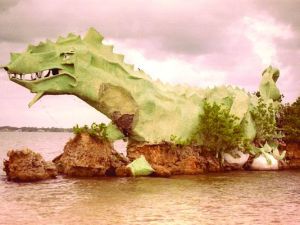
dragon point, “Annie”; from Florida Today
there was a huge mansion at the island’s tip. There used to be a 20-ton statue of a dragon (named Annie) that jutted out into the water, as if she were scooping up minnows from the shallows. Every time we passed that dragon, I’d dream up stories about her life and what she did there. I heard just recently that the mansion is being repaired and the dragon restored–hurray!
We had no seasons: shorts and flip flops at Christmas, shorter shorts and bare feet in the summer. Palm trees stayed the same all year. The only way you knew the holidays were approaching was the change in inventory at the stores. The first winter after moving away, my freshman English teacher stopped class to let me go outside in the snow that was drifting down. I’d never seen snow that I remembered, and she thought it was high time. Summer must be over because school would start up again, and people wouldn’t run the sprinklers in their yards as often. This was a good thing since we were constantly outside sprinting through our neighbors’ yards, and you never knew when their timers would be set to come on, soaking you with smelly sulfur water in the middle of a good game of tag.
Periodically, NASA would announce a rocket launch, and we’d hurry through dinner so we could sit on the picnic table in the backyard and watch it light up the sky, a vertical plume of flame and smoke trailing from its tail as it sped towards its orbit. For really important ones, we’d head to the beach and sit on the sand, listening in the dark for the familiar bass rumble. It was better than a fireworks show. On their way back from Japan after I was born, my parents had watched on the airport TV screens as the Apollo 11 astronauts took their first steps on the moon. About 13 years later, one afternoon when I was in gym class, we looked up to see the Shuttle Columbia and its escort jets flying home to Kennedy Space Center after its recent landing in California. It flew so low I could make out the windows on its side, and we all cheered and waved.
In January of my senior year, I was in Tennessee home from school for a snow day watching TV as the Challenger exploded in mid-launch. We felt it personally, having watched it launch several times from our backyard. One of my sisters worked at Cape Canaveral, where the loss was traumatic and the effects were felt for years afterward.
When we weren’t peering up at the night sky, we were running barefoot in the sunshine. For a time, my family had a boat that we’d take out onto the Indian River. We’d motor under the drawbridges and through the canals, winding our way to the many islands that dotted the river’s landscape. I loved to putter alongside a gently floating school of manatees, their gray backs breaching the surface like ancient whales. Occasionally we’d hand-feed them heads of iceberg lettuce, their whiskery faces peering at us while they munched.
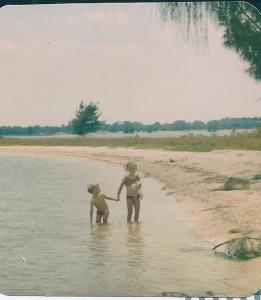
my brother & me, an afternoon on the water
We would anchor at one of these outcroppings and pile out with the day’s lunch and our portable grill. We learned how to dig in the wet sand at the water’s edge with our toes, finding clams that we’d toss on the grill until they popped open, revealing their salty, slightly gritty meat.
I learned to love seafood. My grandfather owned a charter deep sea fishing boat in Panama City, and we’d regularly stock up on fresh-caught grouper and snapper. My parents would go out at night with friends and throw nets from the bridges, hauling in all-you-could-eat shrimp. My dad had a tour of duty assignment in the Grand Turk islands, and he would bring back coolers of conch and lobster, packed on ice. It wasn’t until I was much older that I realized, sadly, that lobster wasn’t an every-day menu item.
One of my friends had a small two-man sailboat. We were not yet old enough for a driver’s license, but she could pilot the little craft around the canals, through the watery backyards of the neighborhood. That was all the freedom we needed, sans wheels.
My father was anxious to leave. Being raised in Wisconsin and Maryland, he couldn’t stand the summer heat. He constantly muttered about the cars, our bikes, and his tools rusting because of the salt air from the ocean breeze. We had to time our exits from the house so as to open the door the minimum amount of time possible, edging through in the briefest of seconds or else he’d yell, “Shut the door!” Obviously we were trying to air condition the entire neighborhood! We were also not allowed to turn on the oven for this reason. The a/c ran constantly, turning him into a miser who constantly monitored the thermostat. But kids don’t see the adult reasoning behind all that frustration. My Florida was an oasis of warmth and ocean breezes, punctuated by the occasional hurricane. We rode our bikes for miles over the flat terrain: to and from school, the library, the movies, friends’ houses. It was a freer time then, before kids were monitored every second through scheduled play dates and after-school activities. We had to be back to our neighborhood before the street lights came on and close enough to hear my father’s whistle for dinner time.
Three of my siblings still call Florida home, so I can easily visit. I have the best of both worlds, with the occasional snowfall and hardwood trees that turn glorious in the fall here and a means to answer the Siren’s call of the ocean whenever I feel the pull. Like, for example, on gray February days like these.






